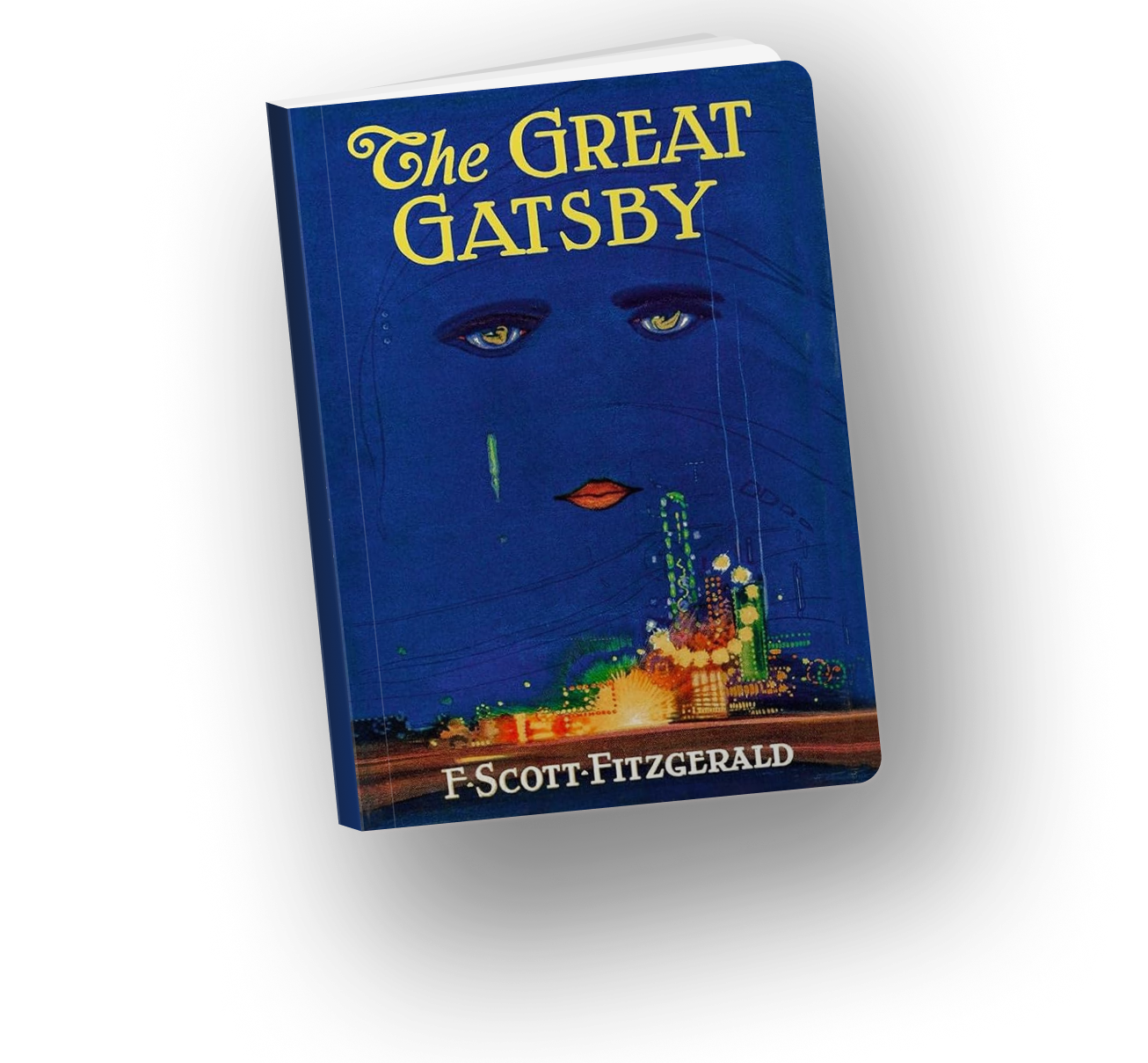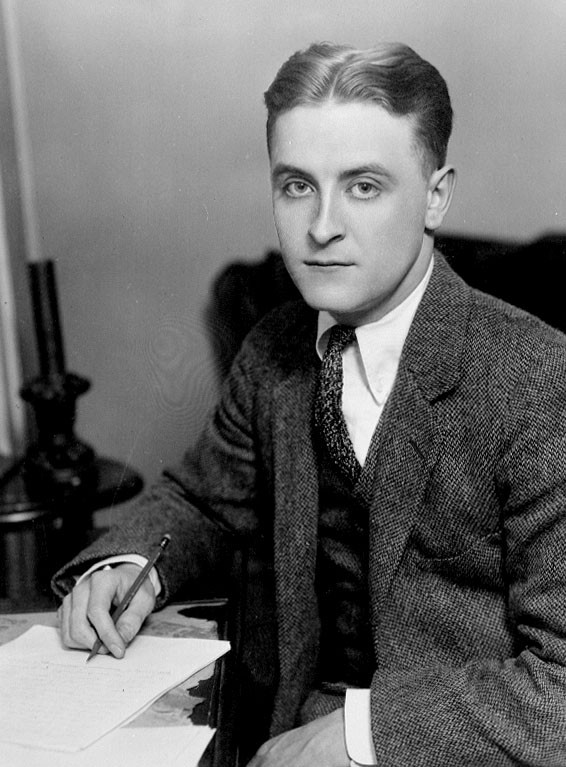— F. Scott Fitzgerald, The Great Gatsby
Big Read Lakeshore 2024 Book
The Great Gatsby
F. Scott Fitzgerald

“So we beat on, boats against the current, borne back ceaselessly into the past.”
Book Summary
The Great Gatsby is considered F. Scott Fitzgerald’s magnum opus, exploring themes of decadence, idealism, social stigmas, patriarchal norms, and the deleterious effects of unencumbered wealth in capitalistic society, set against the backdrop of the Jazz Age and the Roaring Twenties. At its heart, it’s a cautionary tale, a revealing look into the darker side to the American Dream.
About The Author
F. Scott Fitzgerald

Francis Scott Key Fitzgerald (September 24, 1896 – December 21, 1940) was an American novelist, essayist, and short story writer. He is best known for his novels depicting the flamboyance and excess of the Jazz Age—a term he popularized in his short story collection Tales of the Jazz Age.
During his lifetime, he published four novels, four story collections, and 164 short stories. Although he achieved temporary popular success and fortune in the 1920s, Fitzgerald received critical acclaim only after his death and is now widely regarded as one of the greatest American writers of the 20th century.
Born into a middle-class family in Saint Paul, Minnesota, Fitzgerald was raised primarily in New York state. He attended Princeton University where he befriended future literary critic Edmund Wilson. Owing to a failed romantic relationship with Chicago socialite Ginevra King, he dropped out in 1917 to join the United States Army during World War I.
While stationed in Alabama, he met Zelda Sayre, a Southern debutante who belonged to Montgomery’s exclusive country-club set. Although she initially rejected Fitzgerald’s marriage proposal due to his lack of financial prospects, Zelda agreed to marry him after he published the commercially successful book This Side of Paradise (1920). The novel became a cultural sensation and cemented his reputation as one of the eminent writers of the decade.
His second novel, The Beautiful and Damned (1922), propelled him further into the cultural elite. To maintain his affluent lifestyle, he wrote numerous stories for popular magazines such as The Saturday Evening Post, Collier’s Weekly, and Esquire. During this period, Fitzgerald frequented Europe, where he befriended modernist writers and artists of the “Lost Generation” expatriate community, including Ernest Hemingway.
His third novel, The Great Gatsby (1925), received generally favorable reviews but was a commercial failure, selling fewer than 23,000 copies in its first year. Despite its lackluster debut, The Great Gatsby is now hailed by some literary critics as the “Great American Novel”. Following the deterioration of his wife’s mental health and her placement in a mental institute for schizophrenia, Fitzgerald completed his final novel, Tender Is the Night (1934).
Struggling financially because of the declining popularity of his works during the Great Depression, Fitzgerald moved to Hollywood where he embarked upon an unsuccessful career as a screenwriter. After a long struggle with alcoholism, he attained sobriety only to die of a heart attack in 1940, at 44. His friend Edmund Wilson edited and published an unfinished fifth novel, The Last Tycoon (1941), after Fitzgerald’s death. In 1993, a new edition was published as The Love of the Last Tycoon, edited by Matthew J. Bruccoli. (excerpt from Excellence in Literature)
Reviews
“Fitzgerald’s plot may suggest that the American Dream is a mirage, but his words make that dream irresistible.”
“It’s Fitzgerald’s thin-but-durable urge to affirm that finally makes Gatsby worthy of being our Great American Novel. Its soaring conclusion tells us that, even though Gatsby dies and the small and corrupt survive, his longing was nonetheless magnificent.”
“Social class. Class remains our national awkward topic, usually mumbled over in academic diversity workshops; indeed, most people don’t know how to talk about class without automatically coupling it with race. That’s because we Americans are loath to recognize that the sky’s-the-limit potential we take as our birthright comes at a price far beyond what many Americans–of any race–can afford to pay.”
So We Read On: How The Great Gatsby Came to Be and Why It Endures
